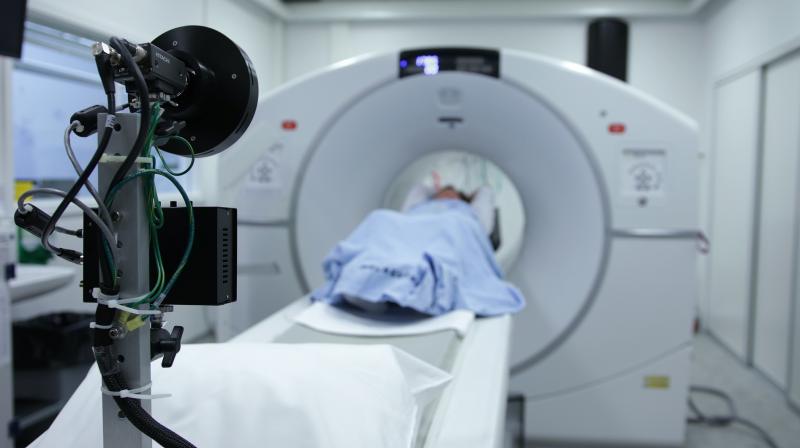AI to power the revolution in the healthcare industry
AI has an immense potential to transform each vertical of the ever growing healthcare sector.

Artificial Intelligence (AI) is used by many people in their daily lives, knowingly or unknowingly, services like voice command tools, navigation services like maps are some common uses of AI. These examples by now would have given many of you an idea of the power of AI and the numerous possibilities it presents for impacting varied business sectors. In most general terms, Artificial Intelligence can be described as the assimilation of human intelligence in machines.
Looking at how AI is now going mainstream, it is no surprise that this tech innovation was one of the major highlights of the Interim Budget 2019, with the announcement of the government’s plan to launch a national program on AI by starting the National Centre for AI and further development of the National AI portal. This encouraging development will now open many avenues and areas for this technology to showcase its advantages and offerings for sectors across the board.
Of the many industries that have successfully implemented and benefitted from the use of AI, provided by machine learning algorithms, there is one, in particular, that is looking to unceasingly leverage the limitless capabilities of the AI revolution, i.e. Healthcare Sector.
AI has an immense potential to transform each vertical of the ever growing healthcare sector. Telemedicine or Telehealth is one such emerging field in the healthcare which is steadily gaining traction. The synergy between AI and telemedicine can bring forward a long term solution to address the problem of accessibility, cost, and quality. The sector has already started using AI in understanding and analysing medical data to facilitate better consumer experience by automating many of its processes. Furthermore, AI can help in improving the telemedicine services by using machine learning algorithm to better diagnose ailments, give better insights and help prognosis in patients’ way ahead and prescribe medications & treatments accordingly. Also, with Indian’s government’s initiative and promotion of digital technology, this sector with the support of telemedicine can reach out to remote areas to provide better healthcare to one and all.
In a country like India where there is a huge disparity in the distribution of healthcare facilities and where there is an unfavourable doctor-patient ratio, which is further compounded by the rich-poor and urban-rural divide, an efficient tandem of telemedicine and AI will play a critical role. The 2030 vision of 1 lakh digital villages could further transform the way healthcare will be accessed and delivered. The steady adaptability can act as a mediator in resolving the issue and making healthcare reachable and affordable to all.
Worldwide valued at USD 38,046 million in 2018 and expected to grow at USD 103,897.77 million in 2024, according to a market intelligence firm, the growth drivers of the teleconsultation market are the need for cost-effective healthcare solutions, technological advancements and increasing prevalence of chronic diseases.
Some other areas of healthcare are already expertly leveraging the power of AI. To start with, many are using bots for customer service. These bots, like any medical assistant, have the capability of doing all the basic and mundane tasks of registering patient information, booking an appointment with doctors or labs and even managing test results while providing impeccable service. It also provides secure customer support from the first step, wherein the patient interacts with an AI application through a chatbot on a website or an app. In fact, the popularity of chatbots gave way to voice bots, which is the next level of the bot era, wherein, after analysing various recordings, an algorithm is formed that has the capability of answering the basic questions pertaining to routine health issues and suggesting its cure on call. This also lessens the long call-waiting time for customers and is intelligent enough to transfer the call to a doctor, when it does not have a solution. This can help offer 24/7 assistance for basic requests, improve customer service and productivity of the sector.
Another important aspect where AI can be used in the healthcare segment is for the treatment of chronic diseases. With every fifth person in India suffering from such a condition, according to a 2018 study, keeping a hawk’s eye on early detection and fitting in regular monitoring is crucial. Thus, AI can help in successfully diagnosing diseases, and can also facilitate regular contact between these patients and healthcare providers. The digitization of this process can assist in continuous monitoring of the patients’ status and administering the medication in patients.
Also, prediction of epidemics is another integral area where AI can support public welfare. In case of communicable diseases, with the help of AI, certain patterns like the weather condition, wind speed, proximity to water bodies, pollution, or earlier outbreaks, can be observed by the machine to give intelligent insights that can further help in clinical decision making.
With prospects galore, the use of AI can lead to incredible results that will bring a paradigm shift in the way doctors treat patients. The collection of data will give the healthcare industry the power to insights that can result in early detection, better care, and thus, improve patient longevity to a certain extent. However, this means, in a long time to come is only a step towards helping real doctors and nurses deliver better and not replace their services and personal touch, which is one of the most central areas of healthcare.
By Ashish Gupta- CEO, Docprime.com.
Disclaimer: The views and opinions expressed in this article are solely those of the original author. These views and opinions do not necessarily represent those of Deccan Chronicle and/or other staff and contributors to this site.

